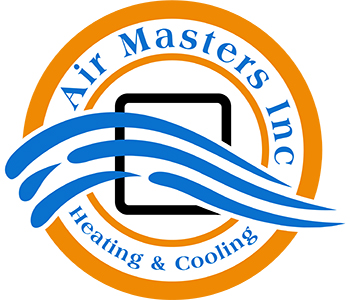Completing the search for your first home is an exhilarating experience. You’re likely juggling a dozen things or more to ensure you’re making the right choice. We believe that understanding your future HVAC system is vital. The property’s HVAC system represents a significant investment and source of potential long-term costs, which is why due diligence should be a top priority for first-time homebuyers.
In this guide, we’ll share seven tips for discovering all there is to know about a home’s heating and cooling system. And if you want a more in-depth opinion from the experts, don’t hesitate to contact Air Masters Heating & Cooling. Our experienced team can help you compare your options with industry insights that are second to none.
1. Which Kind of HVAC System Does the Home Use?
Start by determining what kind of HVAC system the home features. Furnaces generally last longer compared to air conditioners, and some of the latest types of HVAC systems like heat pumps feature average life spans that are even longer. Knowing the make and specific model provides a clear idea of how much routine maintenance it might need.
2. How Long Ago Was the System Installed?
It’s just as smart to learn how old the HVAC system is when you’re considering a new home. For the most part, HVAC systems tend to run for about 10-12 years. Learning its approximate installation date helps you prepare for any needed servicing or when it might break down. Older systems are more prone to problems, so budgeting for a replacement unit could be necessary sooner than you thought.
3. Is the Warranty Still in Effect?
Don’t forget to look into whether the HVAC system is covered by a warranty. If it is, you’ll appreciate how it can lighten the load for maintenance costs. HVAC warranties should take care of parts and labor, but the details in each policy will vary. Review any terms that seem confusing to make sure you fully understand your coverage and any possible out-of-pocket costs.
4. When Was the Last Time It Received Maintenance?
Don’t forget to check the maintenance history of the HVAC system, if this kind of history is accessible. This service history can demonstrate if there have been regular problems or how often a tune-up was scheduled. You should at least try to track down a history of key tasks like filter changes, which is a positive sign indicating regularly scheduled tune-ups.
5. What Are the Energy Efficiency Ratings?
Finding a home that features an HVAC system with strong energy efficiency isn’t just smart; it leads to smaller utility bills and a smaller environmental impact. Check out the seasonal energy efficiency ratio (SEER) ratings for air conditioning along with the annual fuel utilization efficiency (AFUE) for furnaces. Higher SEER ratings mean better cooling across the entire season, while strong AFUE ratings indicate that the fuel is efficiently converted into useable heat.
6. Have You Noticed Signs of Problems During Your Inspection?
Even without heating and cooling expertise, it’s still a good idea to examine the HVAC system yourself. Keep an eye out for any concerning items that haven’t been mentioned by the seller. This can mean bizarre noises, stubborn patches of the house that are too hot or cold and attempts at concealing any obvious damage.
7. Have You Asked Your Local HVAC Professional?
If you’re still hesitant to make an offer because of the current state of the HVAC system, it’s wise to get an assessment and recommendation from certified HVAC professionals. They will be much more likely to catch things you might not, such as refrigerant leaks, wiring issues or damaged ductwork.
A Chat with Air Masters Heating & Cooling Simplifies Your Home-Buying Journey
Selecting your first home is meant to be a joyful event, and Air Masters Heating & Cooling wants to ensure that doesn’t change. Reach out with us at 360-233-2573. We can talk about how our HVAC services give you peace of mind, giving you what you need to step into your new home with confidence.

